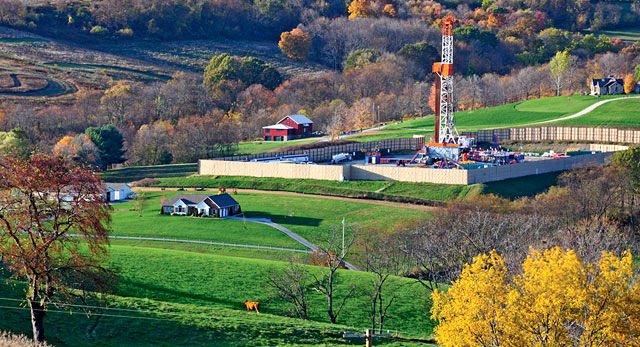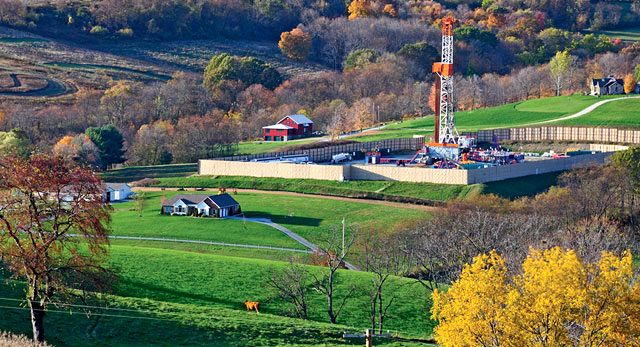

A new study out today from Johns Hopkins in Environmental Health Perspectives revealed associations between fracking and various health symptoms including nasal and sinus problems, migraines and fatigue in Pennsylvanians living near areas of natural gas development. The study suggests that residents with the highest exposure to active fracking wells are nearly twice as likely to suffer from the symptoms.

This is the third study released by Hopkins in the past year that connects proximity to fracking sites with adverse health outcomes. Last fall, researchers found an association between fracking and premature births and high-risk pregnancies, and last month, found ties between fracking and asthma.
Study Links Fracking to Asthma Attacks https://t.co/DaPushZnQg @Gas_Land @MarkRuffalo @foodandwater @aafrackin
— EcoWatch (@EcoWatch) July 19, 2016
What’s more, a 2014 investigation revealed how health workers in Pennsylvania were silenced by the state Department of Health (DOH) and told not to respond to health inquiries that used certain fracking “buzzwords.” Documents obtained by Food & Water Watch last year indicate the DOH was inundated with fracking-related health concerns ranging from shortness of breath and skin problems to asthma, nose and throat irritation, which were ignored or pushed aside.
While the industry will no doubt continue to refute the expanding science about the dangers of fracking, we can’t afford to ignore it. The public health and climate impacts of extreme fossil fuel extraction requires bold leadership to keep fossil fuels in the ground and transition swiftly to renewable energy.

 233k
233k  41k
41k  Subscribe
Subscribe 